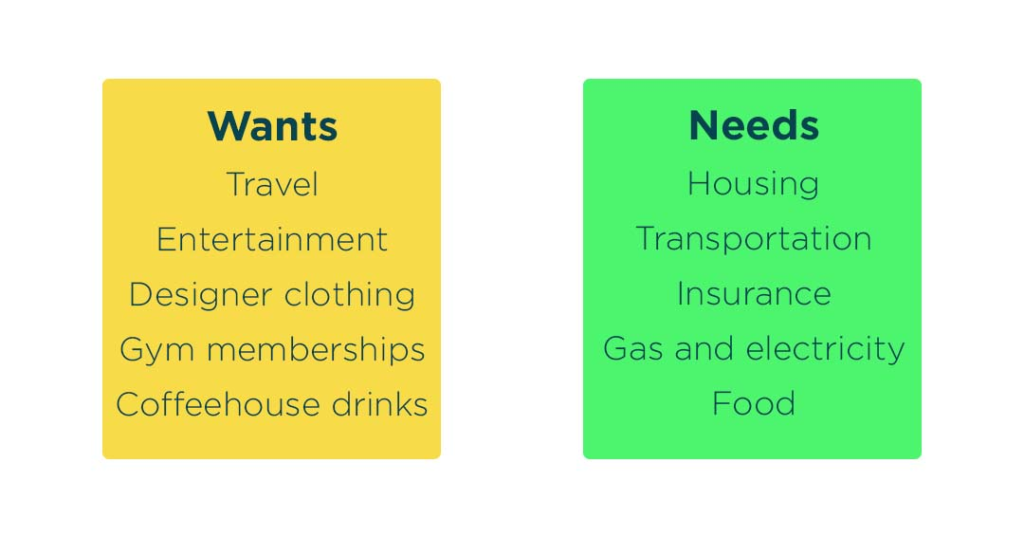Developing financially responsible habits is not an option; rather, it is an absolute must. Adopting a prudent approach to your finances is essential, whether you want to achieve your goals of building up savings, eliminating debt, or just living within your means. The following is a list of ten money-saving behaviors that can give you a road map to a more secure financial future. These routines provide actionable ideas for intelligently managing your finances, such as establishing a budget, keeping track of your spending, and differentiating between necessities and wants. By adhering to these guidelines, you’ll be able to cut back on spending that isn’t absolutely required, build up your savings, and have a better handle on your overall financial well-being. It is time for you to take control of your financial situation and work hard for every rand or dollar.
| Table Of Contents |
| Save money in an emergency reserve for unforeseen needs. |
| Avoid impulse purchases and stick to a shopping list. |
| Keep a careful account of your spending to understand where your money is going. |
| Avoid needless debt and pay it off soon, (High-interest like credit card debt may ruin your finances.) |
| Determine what you need versus what you desire,(Spend on necessities, not desires.) |
| Save money by buying non-perishables in bulk, (Make sure you utilize often and won’t abandon it.) |
| Cut down on energy and water usage to lower bills. |
| Repair and maintain your house using basic DIY skills,( Avoid buying new stuff and reuse it.) |
| Compare prices and options before making major purchases. |
| After saving, invest in low-cost index funds or retirement accounts to enhance your wealth. |
| In Conclusion! |
Save money in an emergency reserve for unforeseen needs.
Having an emergency fund is essential. It offers peace of mind and financial stability for medical crises, auto repairs, and job losses. This fund should contain three to six months’ living expenses, so you may make payments without using credit or depleting savings. For rapid access, store this money in a high-yield savings account. Prioritize this practice to secure your finances and face life’s unexpected obstacles.
Avoid impulse purchases and stick to a shopping list.

Responsible money management requires avoiding impulsive purchases and sticking to a shopping plan. Buying something you don’t need or want on impulse might deplete your savings and financial goals. Create a shopping list based on your real requirements and budget to avoid this.
Plan your purchases before shopping. Prepare a precise list of essentials and estimate their expenses. This helps you focus and distribute finances more efficiently.
Consider a “cooling-off” period for non-essential purchases. Before making an impulse buy, allow yourself a day or two to ponder. Usually, the initial desire fades, protecting you from buying things you’ll regret.
Keep a careful account of your spending to understand where your money is going.

Keeping careful track of your expenditures helps you understand your finances and make smart decisions. Monitoring expenses shows where your money is going. Start by classifying your expenses: housing, groceries, entertainment, and transportation.
Budgeting tools and spreadsheets simplify this procedure and show financial flow. By reviewing this data often, you can spot overspending or cost-cutting possibilities.
Know this to make a realistic budget and allocate resources well. It also reveals unneeded or impulsive expenditures that may be hurting your financial goals. Financial stability and reaching your goals—building an emergency fund, saving for a big purchase, or investing for the future—depend on understanding your spending habits. Knowing your long-term goals lets you make smart financial decisions.
Avoid needless debt and pay it off soon, (High-interest like credit card debt may ruin your finances.)

Avoiding unnecessary debt and paying off high-interest expenses like credit card debt is essential for financial stability and long-term success. Your finances might rapidly become overwhelmed by high-interest debt.
First and foremost, avoid debt for non-essential items. When you borrow, pay off high-interest debt first. To lower principal and interest, contribute more to these loans. To reduce credit card debt, consolidate it with a lower-interest loan, move the balance to a lower-rate card, or negotiate a better repayment plan.
Remember that every rand or dollar spent on interest may be saved, invested, or used to reach your financial objectives. By reducing and paying off high-interest debt, you save money and secure your financial future.
Determine what you need versus what you desire,(Spend on necessities, not desires.)

Being in control of your spending is crucial to your savings journey. This control comes from accepting that there will be temptations and planning in advance for how you’re going to deal with them.
Temptations are normal, but they’re still important to be aware of. If there are places or occasions where you know the temptation will grow, try to avoid going there too much if you can. Going into situations ready to recognize when you’re being tempted to spend is the best way to gain control of your finances. Another way not to succumb to your temptations is to differentiate between a ‘want’ and a ‘need’. A ‘need’ is something you cannot fundamentally live without; food, bills, and shelter, for example. You shouldn’t feel guilty for spending on a need. You ‘want’ an expensive new car when a less expensive pre-owned car will do.
- Responsible financial management requires distinguishing necessities from wants.
- It’s important to prioritize needs over wants.
- A pleasant and secure life requires accommodation, groceries, healthcare, and transportation.
- Consider if a purchase is necessary or just a wish before buying.
- Resist buying things that don’t improve your life.
- A budget that clearly specifies your monthly necessities can help you determine your discretionary cash for wants.
- This budgeting technique helps you save and invest without impulsive spending.
- Prioritizing needs and limiting discretionary spending will make it simpler to save, invest, and reach your financial objectives, ensuring a more solid financial future.
Save money by buying non-perishables in bulk, (Make sure you utilize and won’t abandon it.)
Buying non-perishables in bulk can save money, but it must be done wisely. Here’s how to maximize bulk purchases and maximize your investment:
Plan and prioritize: Make a list of commonly used non-perishables before buying in bulk. Prioritize toilet paper, canned products, cleaning supplies, and dry items like grains and pasta.
Storage: Make sure you have enough room and conditions to store these products. Avoid spoilage and waste by organizing and accessing bulk purchases.
Price Comparison: Bulk isn’t always cheaper. Compare bulk product unit prices to regular-sized products to confirm savings.
Rotate and Consume: “First in, first out” rule Avoid expiration and spoilage by using older goods first. This ensures investment maximization.
Be disciplined and avoid impulse buys. Do not buy in bulk because of a bargain. Keep to your necessities.
By following these principles, you may maximize bulk buy discounts without wasting money on things you may not utilize.
Cut down on energy and water usage to lower bills.

Energy and water conservation help the environment and lower utility bills. Here’s smart energy and water bill reduction advice:
Buy energy-efficient appliances and lights, like LED lamps and Energy Star gadgets. These use less energy, lowering power expenses.
Power down and unplug gadgets when not in use, or utilize power strips to disconnect numerous devices. In standby mode, many appliances utilize “phantom” energy.
Maintain a pleasant house temperature with proper insulation. Insulation minimizes heating and cooling needs, saving energy.
Install a programmable thermostat to efficiently regulate your home’s temperature. Adjust it to lessen heat or coolness when away or sleeping.
Water Conservation: Repair faucet, toilet, and pipe leaks immediately. Reduce water use by using low-flow showerheads and faucet aerators. Only use full dishwashers and washers.
If relevant, check your utility’s time-of-use rates. Switch energy-intensive jobs to off-peak hours to conserve power.
Use natural light during the day to decrease artificial lighting.
Being conscious of energy and water consumption may drastically minimize electricity bills and reduce your environmental footprint. You can save money and live more sustainably with these steps.
Repair and maintain your house using basic DIY skills,( Avoid buying new stuff.)

Whether you own your own place or rent an apartment, it’s only natural that odd home repairs will arise. The frequency and urgency of these issues will, of course, depend on whether your home is brand new or with a little more history. Either way, it’s all too easy to pick up the phone and call a plumber, electrician or other type of tradesperson when actually some of the most common home repairs can easily be remedied DIY.
You know the score, a cupboard door will feel a little loose but you’ll put it off and next thing you know it’s dangling by a thread, which is not only inconvenient but also fairly hazardous to your household. But there are more common repairs that shouldn’t be left alone also, and that you can more than likely resolve yourself.
DIY home repairs and upkeep are cost-effective and environmentally friendly. Smart tips for using this strategy:
- Learn Essential Skills: Learn DIY basics from internet tutorials, books, or local seminars. With help, you can repair walls, mend leaking faucets, and paint rooms.
- Buy Quality Tools: Buy a hammer, screwdrivers, pliers, and a toolbox. These investments allow you to tackle many repairs, which pays off.
- Look for ways to fix or reuse goods before replacing them. Simple repairs may revitalize old furniture and equipment, saving money and waste.
- First, use tools responsibly and take measures. Safety is crucial in DIY projects.
- Start Small: Choose simple tasks and progress to more sophisticated ones as you learn.
- The internet is full of DIY tips. Get help from trusted sources to fix problems and finish projects.
- You will be saving money; these techniques and DIY skills allow you to be self-sufficient and lessen your environmental impact by reusing and repurposing products.
Compare prices and options before making major purchases.

Comparison shopping is a smart way to save on big purchases. Smart tips for comparing pricing and options:
- Conduct research before making any major purchases. Understand the product or service you want and determine its most important attributes.
- Multiple Retailers: Use multiple retailers. Compare pricing, discounts, and warranties at numerous retailers, online and offline. Sometimes, different stores sell the same item at very different costs.
- Reviews: Read user and expert reviews of the product or service. These are indicators of your consideration’s calibre and effectiveness.
- Total Cost: Include the purchase price and any maintenance, repairs, or subscription payments.
- Don’t be hesitant to negotiate, especially for expensive products. Retailers may give discounts or incentives to close sales.
- Wait for Sales: Timing matters. Many things are discounted during certain periods. Savings can be substantial with patience.
- By carefully evaluating pricing and options, you may make educated decisions and avoid overpaying for goods and services.
After saving, invest in low-cost index funds or retirement accounts to enhance your wealth.

After saving a lot, invest smartly to secure your financial future. How to accomplish this effectively: Smart advice:
- Save First: Before investing, have an emergency reserve and no high-interest loans. These fundamentals build financial stability.
- Consider investing in low-cost index funds. Passively managed funds offer diverse stock market exposure and cheaper expenses.
- Portfolio Diversification: Risk management requires diversification. Diversify your investments between equities, bonds, and real estate to mitigate market downturns.
- Take advantage of tax-advantaged retirement plans. You may lower your taxable income and build wealth by contributing to these accounts.
- Think long-term about investing. Interim market volatility is typical, but markets increase over time.
- Monthly, quarterly, or yearly investment account contributions are recommended. Rand – Dollar-cost averaging reduces market volatility.
Following these recommendations, you may invest to generate wealth and secure your financial future while taking advantage of compounding.
In Conclusion!
Being frugal and responsible might boost your finances. Learn to discern needs from wants, regulate spending, and make informed decisions. Budgeting, expense tracking, and emergency savings build financial stability. Paying on time and avoiding high-interest debt can boost savings and investment. Bulk non-perishables may save money if they fit your demands. Conserving water and energy reduces utility costs and environmental effects. Basic DIY skills may save maintenance and repair costs, and comparison shopping is best. Last, judicious investing, especially in low-cost index funds or retirement accounts, develops wealth and financial security. Maintaining these sensible financial habits will help you establish a prosperous and secure future.